In our modern urban society, having a fence around our property is strictly a matter of privacy. However, when you are homesteading, a fence is so much more than that.
Important Considerations
1. Make sure you anchor the posts properly:
The posts of a fence are the anchor points. In other words, the fence is only as strong as the posts. You need to be sure you choose the right fence posts, that they are sturdy, and that you install them correctly. But not all posts are equal. There are line posts that merely hold up the fencing, but there are other posts that truly anchor the fence, such as the posts in the corners, around gates, in curves, and in rises and dips in the ground. These must be anchored with care, usually in concrete, to ensure they are well-braced. You might also want to consider recycled plastic fence posts, as they are going to stand the test of time better than wood, even cedar and black locust.
2. Place your gates carefully:
You do not want to finish building your fence only to find your gates are not in the right places. I cannot stress this enough. Plan your fencing well, ensuring that you take the positions of your gates in to careful consideration. Think about it from the perspective of convenience when planning your gates, determining the best position based on your regular movements around the homestead each day.
3. Watch out for utilities:
Before you dig, know where all underground utility lines are buried! They might be buried in bundles or they might be buried at varying depths. Have someone come out and survey to find the underground lines before you start digging. And beware of building metal fences under power lines. Your local power company can give you advice on how to position your fence safely.
Fence your own property: Make sure you are absolutely certain of where your property line is. It is not uncommon for people to put up a fence, only to find out it is on their neighbor’s property. This is an expensive and inconvenient mistake to make. Hire a surveyor and ensure you know if there are any setback restrictions that set the requirements for how close to your property line your fence can be. Plus, if you leave a strip of land about 20-25 feet between the property line and the fence, you will have a natural corridor for wildlife, somewhere to walk, and a nice natural barrier.
Do your homework: I can’t stress this enough! You need the right fence for the job. A fence designed to keep horses in will not contain your chickens. You need to know everything about the animals you keep, including their habits, such as whether they like to climb or dig or chew. You also need to know the habits of any animals you are trying to keep out. With this in mind, let’s take a look at the best types of homestead fencing for you to use on your property.
Related: DIY Gun Solvent
Types of Fences
It is important to remember that there is not a one-fence-fits-all solution to your fencing needs. As mentioned above, the type of fence you will install depends on your needs and you will have different needs on different parts of your homestead. There was a time when the only material for homestead fences was wood, but these days there are other materials, specifically metal and plastic, that make installing a fence much easier and less expensive. Here are the most popular types of homestead fences in use today.
1. Woven Wire
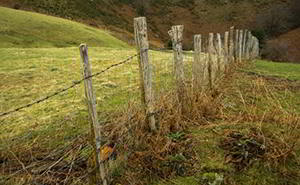 A woven wire fence is one of the best and sturdiest fences you can put up. The wire generally used for homesteading is woven into squares or rectangles and is frequently topped with barbed wire. This fence is more expensive and labor-intensive to install and maintain, but is great for containing any type of livestock, even goats and sheep, which tend to be the most wily when it comes to escape. This is also one of the nicest looking fences to install and is ideal for a property line fence and paddock fencing, although it doesn’t do well on very hilly land.
A woven wire fence is one of the best and sturdiest fences you can put up. The wire generally used for homesteading is woven into squares or rectangles and is frequently topped with barbed wire. This fence is more expensive and labor-intensive to install and maintain, but is great for containing any type of livestock, even goats and sheep, which tend to be the most wily when it comes to escape. This is also one of the nicest looking fences to install and is ideal for a property line fence and paddock fencing, although it doesn’t do well on very hilly land.
Woven wire with smaller holes is also ideal for protecting poultry and gardens from predators. Just remember that you have to install it specifically with the intention of keeping predators out. You do not want foxes eating your chickens and you don’t want rabbits and other small rodents eating your vegetables. You can erect a double fence or can use electrified chicken wire (if it is not an area where children and pets play). The wire mesh of the fence should be buried a minimum of 8-12 inches below the ground and then brought 8 inches out from the fence because many predators, such as foxes and badgers, will dig. The same can be said of your garden fencing.
Related: 10 Common Home Security Mistakes
2. Barbed Wire
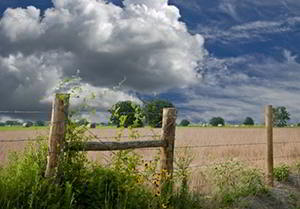 The barbed wire fence is a little less expensive to install and maintain than the woven wire fence, but it is not as effective a deterrent than the woven wire fence. It is very effective at containing large cattle, which try to push down fences that don’t have barbed wire. However, sheep and goats will get through it. Barbed wire can also cause injury to children, pets, and wildlife and it doesn’t have a very appealing appearance. It will work on hilly land quite effectively.
The barbed wire fence is a little less expensive to install and maintain than the woven wire fence, but it is not as effective a deterrent than the woven wire fence. It is very effective at containing large cattle, which try to push down fences that don’t have barbed wire. However, sheep and goats will get through it. Barbed wire can also cause injury to children, pets, and wildlife and it doesn’t have a very appealing appearance. It will work on hilly land quite effectively.
3. Electric Fence
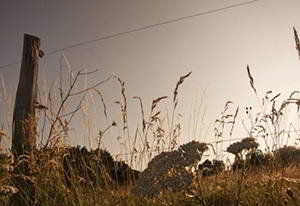 The electric fence is generally made with high-tensile wires spaced 12 to 16 inches apart and through which an electric current is run. This type of fence is cheaper and easier to install and maintain than the other types of fences and is very effective in containing all types of livestock. However, you must monitor this fence on a regular basis and you must protect it from lightning strikes, which can ruin the energizer. This fence will shock any pets or people that touch it.
The electric fence is generally made with high-tensile wires spaced 12 to 16 inches apart and through which an electric current is run. This type of fence is cheaper and easier to install and maintain than the other types of fences and is very effective in containing all types of livestock. However, you must monitor this fence on a regular basis and you must protect it from lightning strikes, which can ruin the energizer. This fence will shock any pets or people that touch it.
When you have a homestead with animals and gardens to contain and protect, you need to choose the right fencing. The main thing to know is that you can’t skimp, not on the cost or the installation of the fence. You can work with a wildlife expert to erect a suitable fence if you are dealing with large predators, such as wolves. Just be sure you know precisely what you need, where to put it, and how to make it as sturdy as possible and you will ensure your livestock and gardens are well-protected.
You may also like:
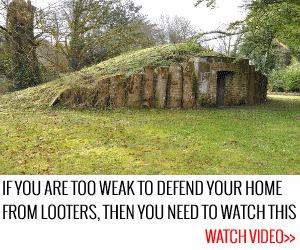 What a Prepper Should Do Around The House
What a Prepper Should Do Around The House
This Bug Will Kill Most of the Americans during the Next Crisis (Video)
Home Security Tips From an Ex-Burglar

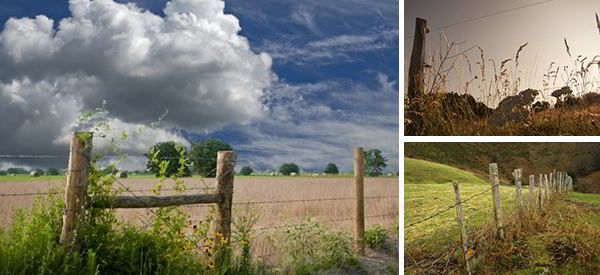
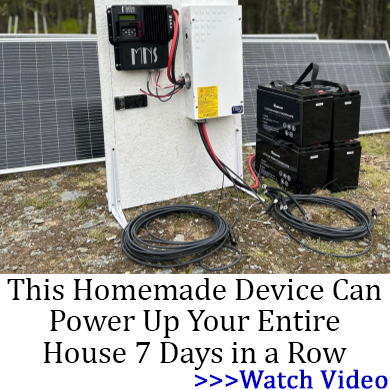
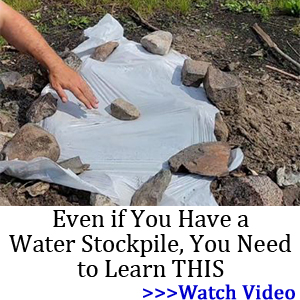


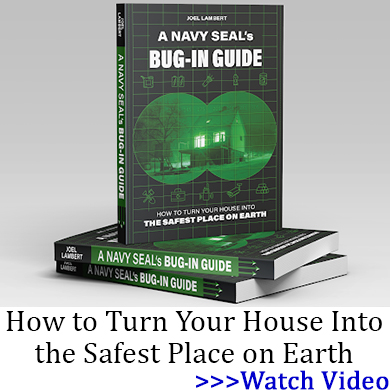





A grass fire will severely weaken or destroy a plastic fence post. I use them only for electric fence cross-fencing for land management to control the grazing of livestock – one plot for grazing, the others for planting and growing.
Stop